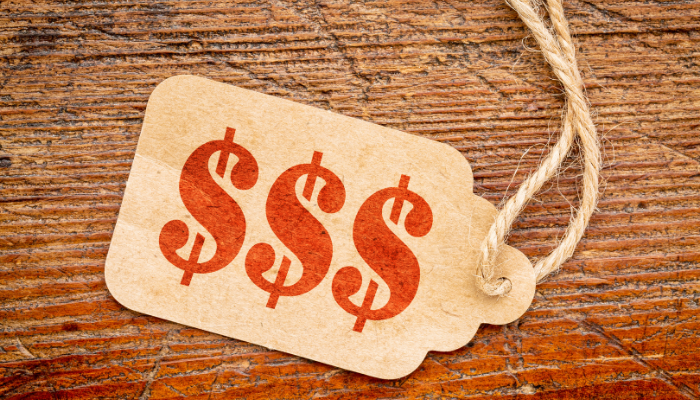
One of the sticking points for most companies interested in invoice factoring is how much it will cost. That is understandable. You don't want to pay outrageous fees just for the chance of freeing up cash you have in unpaid invoices.
The good news is that the charges you pay for factoring invoices are not outrageous.
What does a factoring company charge?
Factoring companies typically charge what is known as a factoring fee for their service. This fee is a percentage of the amount of the invoices being factored.
The exact rate you would pay depends on a number of factors:
- the industry you are in
- the volume of invoices you factor
- the quality and creditworthiness of your customer base
- the specific terms of the factoring agreement
- the days outstanding on open invoices (i.e., how many days it takes your customer to pay on average)
The rates are generally higher on non-resource factoring compared to recourse factoring. With non-recourse factoring, the factor is taking over the risk that a customer will not pay an invoice. This assumption of risk translates to higher rates. With recourse factoring, if an invoice goes unpaid, the factor will send the invoice back to you to handle collections or to write off the bad debt. That translates to lower rates.
Factor Funding, for example, generally charges between 0.07% and 0.1% each day an invoice is outstanding once factored. For 30 days, that translates to between 2.29% and 3.0%.
Are there any other fees involved?
Some factoring companies do charge additional fees, on top of their factoring fee. You may be charged an application fee at the initial set-up. That is to cover their costs in reviewing your application, vetting your customers, and getting the account set-up. Other charges you may see include fees for bank transfers, software, collateral, and other costs associated with being in business.
When you are comparing factoring company quotes, it is important to read all the fine print within the agreement. This is where you may find the hidden fees the company will charge. You may find that they offer a low factoring fee, but make up the difference in the fees they charge on top.
Fortunately, many factors offer a straightforward factoring fee that covers almost all their costs. There are no application fees or hidden charges that will drive up the bill. Factor Funding is one such company.
What about the reserve amount? Does that belong to the factor or the client?
When an invoice is factored, the factoring company will advance between 70% and 90% of the invoice's value in cash to the client. The remaining amount (10% to 30%) is kept as a reserve, to cover factoring fees and to act as a buffer against bad debts. Because the factor does not pay the entire face value of the invoice up front, some have the misconception that the reserve amount is being kept by the factor as a fee for the advance.
The truth is that the money kept in the reserve is the client's money. It is held until the invoice is paid. Then, the remaining balance, minus the factoring fee, is forwarded to the client. So, in the end, the client gets the entire balance of the paid invoices, minus the factoring fee charged for the factor's services.
Can factoring fees vary?
Many factoring agreements contain clauses which adjust the fees if the volume of the invoices being factored changes. So, if your company initially factored $10,000 of invoices each month, then you started factoring $20,000 in invoices monthly, you may see the factoring fee drop. It all depends on the terms of the agreement.
Don't let the prospect of fees deter you from exploring factoring as an option for your business. You need to get solid quotes from a few factoring companies to see exactly what is involved. Then, you can make an educated decision on what is best for your company and its cash flow needs.

















